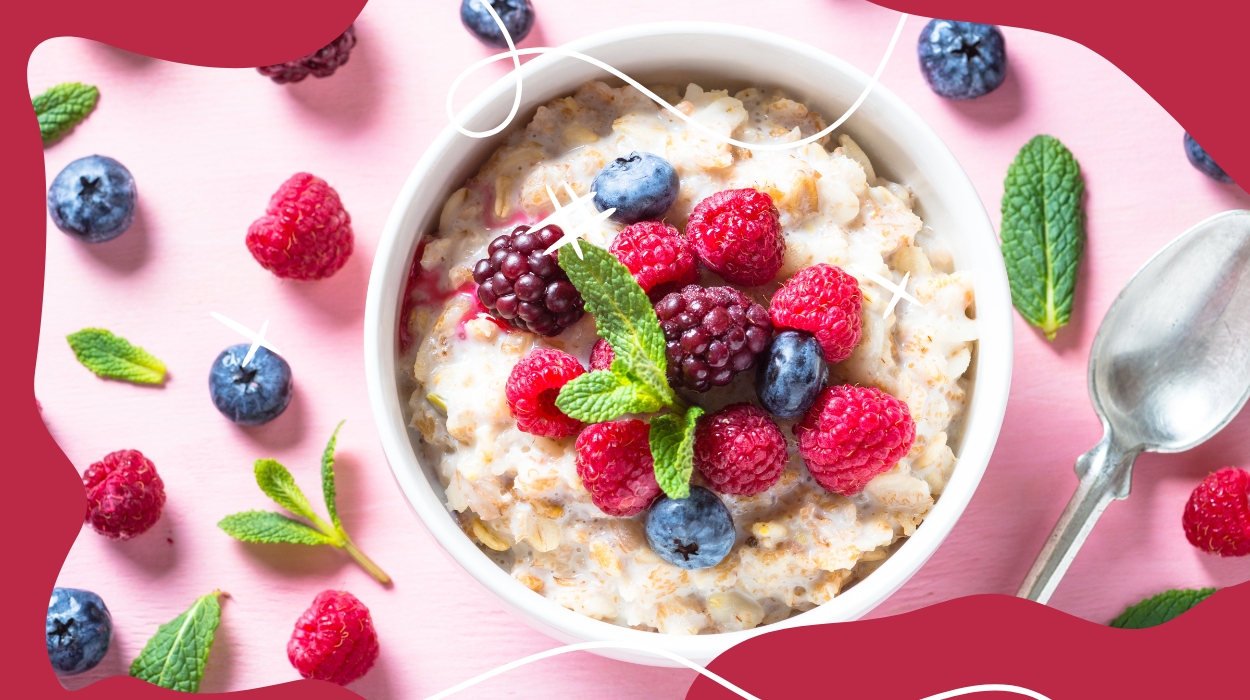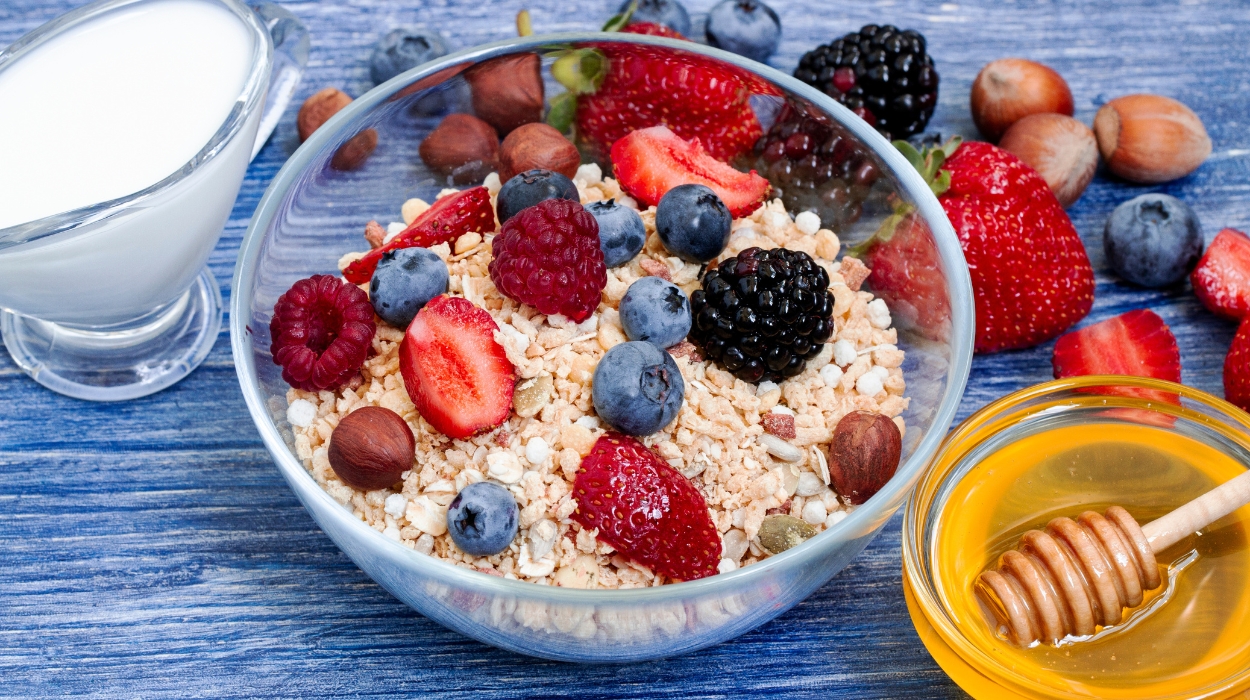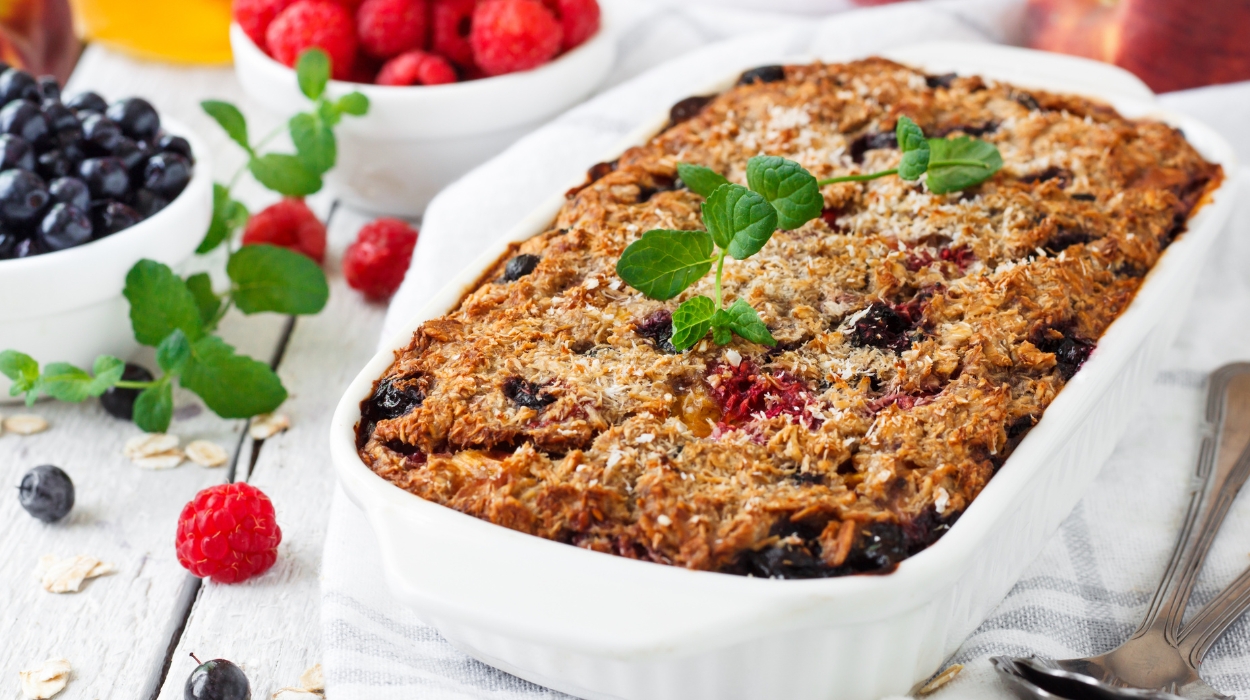 Expert's opinion
Expert's opinion
Expert's opinion
The article is a subjective view on this topic written by writers specializing in medical writing.
It may reflect on a personal journey surrounding struggles with an illness or medical condition, involve product comparisons, diet considerations, or other health-related opinions.
Although the view is entirely that of the writer, it is based on academic experiences and scientific research they have conducted; it is fact-checked by a team of degreed medical experts, and validated by sources attached to the article.
The numbers in parenthesis (1,2,3) will take you to clickable links to related scientific papers.
Is Oatmeal Good For Weight Loss? Benefits, Risks & How To Eat 2024

Oats are an economical and versatile grain. They are a staple in many people’s diets. Be it a comforting warm porridge or part of your favorite milkshake, it can be a tasty treat. Oatmeal can also be considered a superfood because of its many health benefits.
This grain is a good source of dietary fiber and nutrients that have been associated with maintaining heart health. Eating oatmeal may also be helpful with satiety. With this, we need to ask if oatmeal is good for weight loss, too.
Is Oatmeal Good For Weight Loss?
Eating oats can help you lose weight. Oats are a source of fiber that may help you eat less and keep you feeling full longer. Eating oatmeal can also prevent insulin resistance and keep your heart and bowels healthy.
Fiber is a carbohydrate in foods that is not digested. It is later fermented in the intestines. There are two types of fiber: soluble and insoluble. Both types of fibers have the physiological[1] role of bulking up stools and mediating the absorption of nutrients (like fatty acids). The Dietary Guidelines for Americans[2] recommend we eat between 25-38 grams of fiber daily.
Studies[3] show how eating oats helps with satiety. This is most likely related to the viscosity of the type of soluble fiber in oats, beta-glucan.[4] After consumption, soluble fiber gels, delay gastric emptying and transit through the intestines. This is how it keeps you fuller longer.
High-fiber foods like oatmeal, whole grains, vegetables, and fruits can also help with satiety. These foods are chewy and take longer to masticate. This, simply, makes you eat more slowly, which allows your body the time to process the signals of satiety[3] and gastric fullness.
Another way that fiber in oats[3] can help support weight loss is by acting as a prebiotic[5] to maintain healthy bacteria in your gut. When soluble fiber is fermented in the intestines, it promotes healthy Bifidobacterium bacteria thrive. Having unhealthy bacteria[6] in your gut is associated with inflammation and obesity. Eating good fiber food sources, like oats, may help you maintain a healthy weight.
Other health benefits of eating oats are blood glucose (sugar) management and the lowering of lipids[7] in the blood, like cholesterol. In a review of the effect of oats consumption on glucose levels, it was found that the consumption of oats does help with glucose[8] response after eating.
In people with diabetes,[9] it may have a glucose-lowering effect. Eating oats also has been correlated with decreased[10] total cholesterol and low-density cholesterol (LDL) levels, decreasing the risk of heart disease.
There is no clear consensus on how much oat consumption to eat to lose weight. Most studies used oat amounts that contain more than 3 grams of beta-glucans. Five tablespoons of oats have an estimated 5 g of beta-glucans. Consuming around 4 tablespoons daily may be enough to help you achieve your weight loss diet results.
Eating oatmeal may not be an option for all. Some gastrointestinal conditions that require a low-fiber diet may need to avoid oats. If you are following a ketogenic diet, this food is a good source of carbohydrates to avoid. Also, if needing to maintain a gluten-free diet, make sure to read the label. Oats are naturally gluten-free but may be contaminated when processed. Discuss with a Registered Dietitian if incorporating oats into your healthy diet will help maintain your health goals.
Calories In Oatmeal
One ounce of oats[11] contains:
- Calories: 109
- Protein: 4 grams (g)
- Carbohydrates: 19.4 g
- Fiber: 3 g
- Fat: 2 g
Oats are also a good source of phosphorous, thiamine, magnesium, and zinc.
Mistakes When Eating Oatmeal That May Cause Weight Gain

Sometimes we assume that just incorporating a food item into your daily intake will promote weight loss. In reality, it is a combination of actions that will help you lose weight. Managing your body weight may require a change in your daily calorie intake and/or energy used by physical activity. Following the next recommendations to avoid weight gain when eating oatmeal will be beneficial.
- Avoid large portions, even with oats: Overindulging may cause you to consume excess calories and end up in your gaining weight. Keep your oatmeal portion between a half cup to one cup.
- Avoid adding too much sugar to your oats: Although eating oats as dessert is tempting, adding too much sugar may affect your weight loss journey. You may need to avoid instant oats with added sugar. If in a time crunch, a better choice is using instant oatmeal without added sugar to keep your weight loss goals.
- Underestimate added fats: Adding healthy toppings to your oatmeal like nuts, nut butter, and coconut oil is tasty and will give you more nutrients. Limit how much you add of these items to your oats since the calories can add up.
- Drink enough liquids: Inadequate liquid intake may bulk up the fiber in your gut, resulting in constipation.
- Make sure not to eat plain oatmeal: Although tempting to avoid adding extra calories, it might not feel like a full meal, and hunger will be counterproductive. Either make it a part of your meal or make it a complete meal by adding protein and fats.
Ways To Eat Oatmeal For Weight Loss
Oatmeal is a versatile whole grain. Eat it raw, cooked, baked, sweet, or savory. It also can be a great item to crust your foods and give them a crunchy exterior. First, you need to choose the processing of your oats: steel-cut, bran, rolled or old-fashioned, or instant. This will determine the cooking time and texture of your healthy food or oatmeal.
Explore the different textures of oats to give variety to your plate. All types of oats are good for the body and may help you lose weight.
Overnight Oats
This is a really popular recipe to follow since it requires no cooking. Overnight oats do require assembly and pre-planning, as they need to “rest” overnight for the oats to absorb the liquid. For this recipe, just choose a liquid (like milk, plant-based milk, or water), dry oats (maybe rolled oats for texture), and your own toppings/mix-ins.
Consider things like chia seeds, dried fruits, nuts, nut butter, cinnamon, vanilla, sweetener, or sugar substitutes (sucralose, stevia, monk fruit, erythritol). These will add flavor and texture to your oatmeal and will make your oats a great start to your day.
Baked Oatmeal

Baking oatmeal may sound laborious but ends up being a tasty treat. It can be part of a healthy breakfast option and also a treat. It is high in fiber and most recipes contain eggs, butter, and milk, similar to a cake. Recipes online may give you ideas that may contain zucchini, fresh fruits, plant-based milk, and amongst other alternatives.
The best part about baked oatmeal is that you bake a batch and can enjoy it for multiple days. A big batch allows for hitting your daily oatmeal target with tasty bites.
Savory Oatmeal
This may be more adventurous for some, but oats can be a replacement for grains on your plate, like rice or quinoa. Use broth (chicken, beef, fish, or vegetable) to soak your oats to give them a savory flavor. You may also just cook in water, salt, and other spices. Create a breakfast bowl with oats, pan-fried egg, avocado, and tomatoes on top.
You can also use oats as a higher-fiber breading for your proteins. It will give your fish or chicken a tasty crunch.
Smoothies Or Milkshakes
The simplest way is to incorporate a couple of tablespoons of oats into a fresh fruit smoothie or a protein milkshake. This technique may hide the oatmeal texture but will keep the flavor and nutrients.
Consider also topping smoothie bowls or yogurt with sprinkles of oatmeal for additional texture.
The Bottom Line
Incorporating oatmeal into your healthy diet may help you lose weight. The easiest way to consume it is as part of a healthy breakfast. Oatmeal may help keep you feeling full longer, helping with eating fewer calories to drop some pounds. Eating oatmeal regularly may also have added health benefits like diabetes prevention and decreased heart disease risk.
+ 11 sources
Health Canal avoids using tertiary references. We have strict sourcing guidelines and rely on peer-reviewed studies, academic researches from medical associations and institutions. To ensure the accuracy of articles in Health Canal, you can read more about the editorial process here
- Rebello, C.J., O’Neil, C.E. and Greenway, F.L. (2016). Dietary fiber and satiety: the effects of oats on satiety. [online] 74(2), pp.131–147. doi:https://doi.org/10.1093/nutrit/nuv063.
- Gov, D. (n.d.). Dietary Guidelines for Americans 2020 -2025 Make Every Bite Count With the Dietary Guidelines. [online] Available at: https://www.dietaryguidelines.gov/sites/default/files/2021-03/Dietary_Guidelines_for_Americans_2020-2025.pdf.
- Kristensen, M. and Morten Hasselstrøm Jensen (2011). Dietary fibres in the regulation of appetite and food intake. Importance of viscosity. [online] 56(1), pp.65–70. doi:https://doi.org/10.1016/j.appet.2010.11.147.
- Federal Register. (2005). Food Labeling: Health Claims; Soluble Dietary Fiber From Certain Foods and Coronary Heart Disease. [online] Available at: https://www.federalregister.gov/documents/2005/12/23/05-24387/food-labeling-health-claims-soluble-dietary-fiber-from-certain-foods-and-coronary-heart-disease.
- Sargautiene, V., Ilva Nakurte and Vizma Nikolajeva (2018). Broad Prebiotic Potential of Non-starch Polysaccharides from Oats (Avena sativa L.): an in vitro Study. [online] 67(3), pp.307–313. doi:https://doi.org/10.21307/pjm-2018-036.
- Miyamoto, J., Watanabe, K., Taira, S., Mayu Kasubuchi, Li, X., Irie, J., Itoh, H. and Kimura, I. (2018). Barley β-glucan improves metabolic condition via short-chain fatty acids produced by gut microbial fermentation in high fat diet fed mice. [online] 13(4), pp.e0196579–e0196579. doi:https://doi.org/10.1371/journal.pone.0196579.
- Xu, D., Feng, M.-Y., Chu, Y., Wang, S., Varsha Shete, Tuohy, K., Liu, F., Zhou, X.-R., Kamil, A., Pan, D., Liu, H., Yang, X., Yang, C., Zhu, B., Lv, N., Xiong, Q., Wang, X., Sun, J., Sun, G. and Yang, Y. (2021). The Prebiotic Effects of Oats on Blood Lipids, Gut Microbiota, and Short-Chain Fatty Acids in Mildly Hypercholesterolemic Subjects Compared With Rice: A Randomized, Controlled Trial. [online] 12. doi:https://doi.org/10.3389/fimmu.2021.787797.
- Andreea Zurbau, Noronha, J.C., Khan, T., Sievenpiper, J.L. and Thomas M.S. Wolever (2021). The effect of oat β-glucan on postprandial blood glucose and insulin responses: a systematic review and meta-analysis. [online] 75(11), pp.1540–1554. doi:https://doi.org/10.1038/s41430-021-00875-9.
- Hou, Q., Li, Y., Li, L., Cheng, G., Sun, X., Li, S. and Tian, H. (2015). The Metabolic Effects of Oats Intake in Patients with Type 2 Diabetes: A Systematic Review and Meta-Analysis. [online] 7(12), pp.10369–10387. doi:https://doi.org/10.3390/nu7125536.
- Sima, P., Vannucci, L. and Vaclav Vetvicka (2018). β-glucans and cholesterol (Review). [online] doi:https://doi.org/10.3892/ijmm.2018.3411.
- Usda.gov. (2023). FoodData Central. [online] Available at: https://fdc.nal.usda.gov/fdc-app.html#/food-details/2343865/nutrients.



